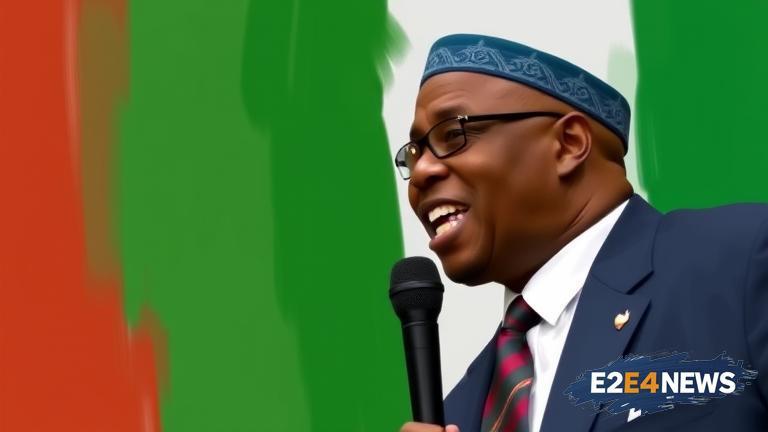The Nigerian political landscape has been abuzz with the recent war of words between Anambra State Governor Charles Soludo and former governor Peter Obi. The verbal spat began when Governor Soludo proposed a single term for presidents and governors in the country, a move that was met with resistance from Obi. According to reports, Obi had expressed his disagreement with the proposal, stating that it was not the solution to the country’s political problems. In response, Governor Soludo fired back, accusing Obi of being selfish and only looking out for his own interests. The exchange has sparked a heated debate among Nigerians, with many weighing in on the issue. A Nigerian lawyer has now shed light on the matter, providing an in-depth analysis of the proposal and its potential implications. The lawyer noted that the proposal was not a new idea, as it had been previously suggested by other politicians. However, the lawyer also pointed out that the proposal had its drawbacks, including the potential for abuse of power. The lawyer further stated that the proposal would require a constitutional amendment, which would be a difficult and time-consuming process. Despite the challenges, the lawyer believed that the proposal was worth considering, as it could help to reduce the cost of elections and promote political stability. The lawyer also noted that the proposal had received support from some quarters, including some civil society groups. However, others had expressed opposition to the idea, citing concerns about its potential impact on democracy. The verbal spat between Governor Soludo and Obi has also raised questions about the role of politicians in shaping the country’s political discourse. Some have argued that politicians should focus on addressing the country’s pressing issues, rather than engaging in petty squabbles. Others have noted that the exchange has highlighted the need for more nuanced and respectful dialogue in Nigerian politics. As the debate continues to rage on, it remains to be seen whether the proposal will gain traction or fade away. The lawyer’s insights have provided a fresh perspective on the issue, and it is likely that the debate will continue to evolve in the coming days. The Nigerian political landscape is known for its complexity and unpredictability, and it is likely that the proposal will be subject to intense scrutiny and debate. The country’s political leaders will need to navigate the issue with care, taking into account the potential implications and consequences of their actions. The proposal has also sparked a wider conversation about the state of Nigerian politics and the need for reform. Many have argued that the country’s political system is in need of an overhaul, and that the proposal is just one part of a broader effort to address the country’s political challenges. As the country moves forward, it is likely that the proposal will remain a topic of discussion and debate. The lawyer’s analysis has provided a valuable contribution to the conversation, and it is likely that others will weigh in with their own perspectives and insights. The issue is a complex one, and it will require careful consideration and nuanced discussion. The Nigerian people will be watching with interest as the debate unfolds, and it is likely that the outcome will have significant implications for the country’s political future. The proposal has also raised questions about the role of the judiciary in shaping the country’s political discourse. Some have argued that the judiciary should play a more active role in addressing the country’s political challenges, while others have noted that the judiciary should remain impartial and avoid taking sides. The lawyer’s insights have provided a fresh perspective on the issue, and it is likely that the debate will continue to evolve in the coming days. The Nigerian political landscape is known for its complexity and unpredictability, and it is likely that the proposal will be subject to intense scrutiny and debate. The country’s political leaders will need to navigate the issue with care, taking into account the potential implications and consequences of their actions. The proposal has also sparked a wider conversation about the state of Nigerian politics and the need for reform. Many have argued that the country’s political system is in need of an overhaul, and that the proposal is just one part of a broader effort to address the country’s political challenges. As the country moves forward, it is likely that the proposal will remain a topic of discussion and debate. The lawyer’s analysis has provided a valuable contribution to the conversation, and it is likely that others will weigh in with their own perspectives and insights. The issue is a complex one, and it will require careful consideration and nuanced discussion. The Nigerian people will be watching with interest as the debate unfolds, and it is likely that the outcome will have significant implications for the country’s political future.
